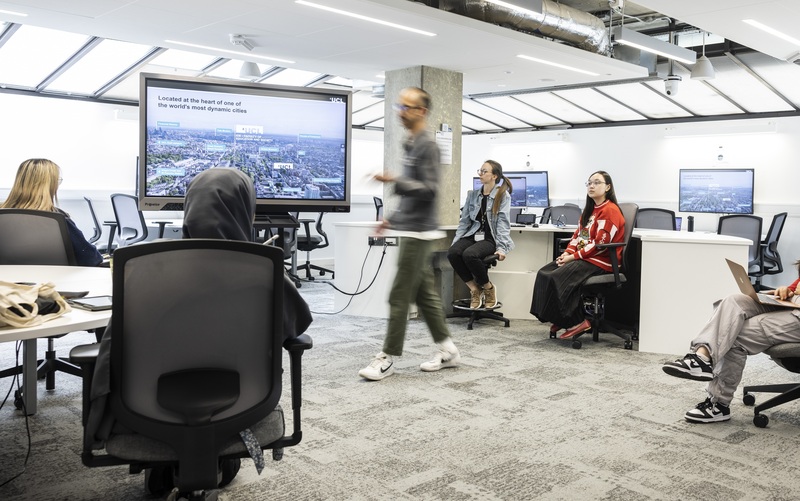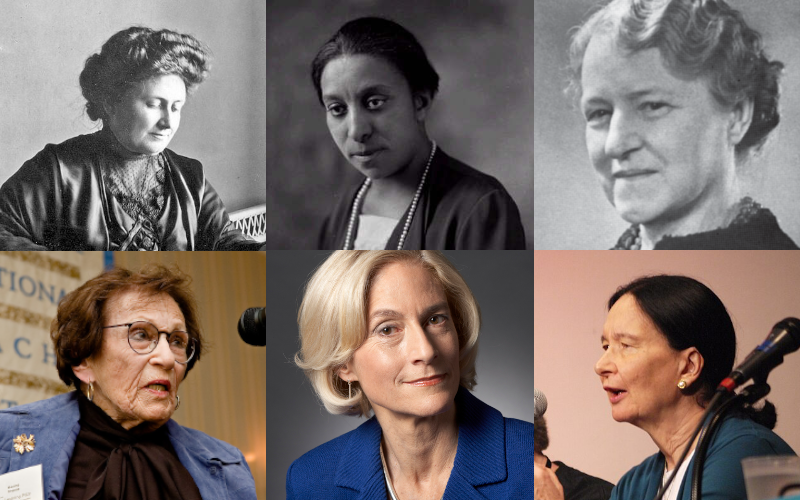Lots of children find school science lessons boring. Should science teachers include discussion of ethical issues?
By Blog Editor, IOE Digital, on 12 September 2023

Credit: Joaquim Alves Gaspar / Wikimedia Commons.
Amanda McCrory and Michael J. Reiss.
Early in 2023, and for the third year in a row, the UK government decided to allow the ‘emergency’ use of the pesticide thiamethoxam (a type of neonicotinoid) on sugar beet in England. Thiamethoxam is normally banned because it is incredibly toxic to bees and other insects. A single teaspoon can kill over a thousand million bees.
Should school children consider ethical issues such as whether these pesticides should be used? In our newly published book The Place of Ethics in Science Education: Implications for Practice, we look at the arguments for and against the inclusion of ethical issues in science education. Read the rest of this entry »
Early childhood education and care – taking a long view
By Blog Editor, IOE Digital, on 7 September 2023

Credit: Rodnae Productions.
Alison Clark, Claire Cameron and Peter Moss.
Political parties are preparing their offers on early childhood policies for the next election. While it’s encouraging to see consensus exists that early childhood education and care is a priority, the myopic and short-term approach shared by all parties – more and cheaper ‘childcare’ seems to be the common theme – is deeply disappointing. Tinkering with a dysfunctional system is preferred to taking the long view and transforming early childhood in England.
Taking the long view on early childhood is the subject of the next event in our programme marking the 50th anniversary of the Thomas Coram Research Unit. Since 1973, TCRU has conducted ground-breaking national and international research on early childhood policy, provision and practice, research that has collectively presented a more ambitious path for the early years. Read the rest of this entry »
Learning from the Covid lockdowns: how can nurseries support parents and carers at the sharp end?
By Blog Editor, IOE Digital, on 19 July 2023

Credit: Polack via Adobe Stock.
Rachel Benchekroun and Claire Cameron.
Given the growing pressures on families in the context of ongoing austerity policies and the current cost-of-living crisis, as well as the immense financial pressure on early years providers, greater investment is needed from central government to enable early years settings to provide safe, supportive and sociable spaces for families with young children. Read the rest of this entry »
The climate crisis needs a whole-school approach, starting with teacher access to professional development
By Blog Editor, IOE Digital, on 13 July 2023

Credit: Hero Images / Adobe Stock
Kate Greer and Alison Kitson.
A new survey of teachers in England has found limited coverage of climate change and sustainability in both initial teacher education and continuing teacher professional development – and provides the impetus for change.
These findings, from UCL’s Centre for Climate Change and Sustainability Education (CCCSE) are set out in a new report, Teaching climate change and sustainability: A survey of teachers in England. Covering teachers’ practice, professional development and priorities for support, the findings will be of interest to teachers, teacher educators and organizations that support teachers to contribute to society’s transformation to sustainability, as well as to schools as they develop and implement climate change action plans. The findings are also informing CCCSE’s suite of free professional development resources – Teaching for Sustainable Futures – which are being designed for teachers of all subjects and age-phases. The Geography and History modules, for primary and secondary teachers in each case, are ready to access now (see the joining instructions on CCCSE’s website). The next set of modules – English and mathematics – will be available in 2024. Read the rest of this entry »
Looking at teacher recruitment and retention in a new light
By Blog Editor, IOE Digital, on 27 June 2023

Credit: Hero Images / Adobe Stock
Gemma Moss and Becky Taylor.
The school workforce crisis
Making teaching an attractive career matters, most obviously to schools and their immediate communities, but also to those preparing the next generation of teachers, to researchers trying to throw light on where things have gone wrong, and with policymakers, looking for solutions.
Solving this problem is urgent. NFER’s 2023 Teacher Labour Market report shows just how much the teacher recruitment and retention challenge in England has intensified since the Covid-19 pandemic. Teacher vacancies posted by schools are up 93% compared to a similar point in 2019. The DfE’s recruitment targets for ITE are not being met. Staffing challenges are particularly acute in schools working with our most disadvantaged communities. All this has led the Commons Education Select Committee to launch its own inquiry into what can be done to improve the school workforce situation. Read the rest of this entry »
The challenges of moving on from ‘teaching-as-telling’ (in higher education) – and some steps that can help convert new ideas into new practices
By Blog Editor, IOE Digital, on 15 June 2023

Credit: Mat Wright for UCL IOE
Even the most experienced teachers can struggle to innovate their teaching practice. But how well are we serving these tutors in realising that end point? My research highlighted the value of explicitly scaffolding teachers’ reflection on their practice with theories of teacher development and learners and learning – to support their development as teachers but also keep expectations in check and motivating.
There is an increased expectation that teachers in further and higher education should be trained in teaching, learning and assessment. The most common route to this end is a one-year Postgraduate Certificate in Higher Education programme. In general, there is evidence of broad benefit from such programmes, but their contribution to developing the teacher’s conception of teaching/learning such that it supports parallel changes to their actual teaching practice is not so well-established.
Working class young people still often rely on luck for social mobility
By Blog Editor, IOE Digital, on 13 June 2023

Credit: Kues1 via Adobe
This article was originally published on Wonkhe.
What is the secret of social mobility? How and why do some working class young people “go against the grain” to succeed educationally?
Our recent ASPIRES study, based at UCL, found that luck seems to play a key role in creating opportunities for social mobility.
The study draws on insights from over 200 longitudinal interviews conducted with 20 working class young people and 22 of their parents over an 11-year period, from age 10-21. Read the rest of this entry »
Bringing women curriculum theorists into the light
By Blog Editor, IOE Digital, on 8 June 2023

Six women curriculum theorists, clockwise from top left: Maria Montessori, Lucy Diggs Slowe, Susan Isaacs, Susan Haack, Martha Nussbaum, Maxine Greene (Credit: public domain; Alpha Kappa Alpha; IOE Institute Archives; zooterkin; Robin Holland; Ryan Brenizer, all Wikimedia Commons)
Sandra Leaton Gray and David Scott.
At David’s retirement party, after all the toasts and speeches, we started discussing something that represents a still accumulating problem in the field of curriculum studies: how is it that so many of the seminal works relating to curriculum theory focus exclusively on the contributions of men, given that there are many such female theorists (and professional educators are more likely to be women)? To that end, recently we have been giving a great deal of thought to different formations and interpretations of feminism, as a way of gaining new insights into the field. Read the rest of this entry »
As a researcher on inclusive education, these are the top tips and resources I’d recommend for creating accessible digital content
By Blog Editor, IOE Digital, on 30 May 2023

Live stream of a talk with BSL interpretation and live captioning.
What is accessibility and why should we think about it? Accessibility is ensuring physical and digital spaces and products are accessible to people with disabilities. It is also a lot more than that, because by making access easier for disabled people, we make access easier for everyone. Moreover, thinking about accessibility is not optional, it ensures compliance with minimum legal requirements, such as the Equality Act (2010) and the EU Directive on Web Accessibility (2018). As highlighted by the Global Accessibility Awareness Day, accessibility is not just ‘nice to have’ or a ‘tick-box’ exercise, so everyone in an organisation must know and be committed to best practices. Read the rest of this entry »
How the outcry over a Reading test reveals wider problems with SATs
By Blog Editor, IOE Digital, on 24 May 2023

Credit: Phil Meech, UCL.
One of my daughters did Key Stage 1 SATs ‘quizzes’ last week, and she found it tiring and emotional. Some of her friends were in tears over how they did, and this is without the pressures of having your results used to appraise the whole school. Judging by the outcry over the Reading paper, the Key Stage 2 SATs week was especially tough for pupils, parents and teachers alike this year. But this concern over SATs goes much deeper than one difficult paper; many parents and teachers have simply had enough of what they see as a damaging system. Read the rest of this entry »
 Close
Close


